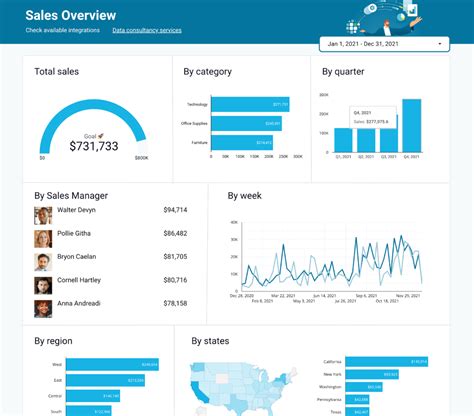data aggregation and trending in a casino 25/01/2025,BIG DATA ANALYSIS IN CASINOS: HOW INFORMATION IS ,data aggregation and trending in a casino,Jun 3, 2024 · By analyzing vast amounts of data, casinos can gain insights into player behavior, optimize operations, and create personalized experiences. This article explores how Find the latest match odds for Crystal Palace v Manchester City on BetMGM. Odds are subject to change. Crystal Palace - 17/4; Draw - 13/4; Manchester City - 3/5; Crystal .

In the fast-paced world of the casino industry, data analytics has become a game-changer, providing invaluable insights into player behavior, operational efficiency, and revenue optimization. Casinos are increasingly turning to big data analysis to aggregate and trend data, allowing them to make informed decisions that drive business growth. This article explores the various applications of big data in the casino industry, how information is analyzed, the impact of data analytics on revenue management, and the transformational power of data analytics in casinos.
Data analytic tools aggregate the data and develop meaningful patterns that offer insights into the casino's performance and player trends. The data analysis presents valuable information to increase the casinos' revenue
7 Applications of Big Data in the Casino Industry
1. Player Tracking: Casinos use big data analytics to track player behavior, preferences, and spending patterns. This information helps casinos tailor their marketing strategies and loyalty programs to attract and retain high-value players.
2. Predictive Maintenance: By analyzing data from slot machines, table games, and other equipment, casinos can predict when maintenance is needed to prevent costly breakdowns and downtime.
3. Fraud Detection: Big data analytics can identify suspicious activities, such as cheating or money laundering, in real-time, allowing casinos to take immediate action to mitigate risks.
4. Optimized Marketing Campaigns: Casinos use data analytics to segment their customer base and target specific demographics with personalized marketing campaigns that drive engagement and loyalty.
5. Revenue Management: Data aggregation and trending help casinos optimize pricing strategies, maximize revenue from gaming and non-gaming activities, and forecast demand to ensure efficient resource allocation.
6. Risk Management: Big data analysis enables casinos to assess and mitigate risks, such as regulatory compliance, cybersecurity threats, and financial volatility, to protect their assets and reputation.
7. Operational Efficiency: By analyzing data on staff performance, customer service levels, and facility usage, casinos can streamline operations, reduce costs, and enhance the overall guest experience.
BIG DATA ANALYSIS IN CASINOS: HOW INFORMATION IS ANALYZED
In a casino setting, vast amounts of data are generated every minute, including player transactions, gaming outcomes, hotel bookings, restaurant reservations, and more. Big data analytics tools collect, process, and analyze this data to uncover valuable insights that drive strategic decision-making. Here's how information is analyzed in casinos:
1. Data Aggregation: Big data analytics tools aggregate data from multiple sources, such as customer databases, point-of-sale systems, surveillance cameras, and social media platforms, to create a comprehensive view of the casino's operations and customer interactions.
2. Pattern Recognition: By applying advanced algorithms and machine learning techniques, casinos can identify patterns, trends, and anomalies in the data that may not be apparent through traditional analysis methods.
3. Predictive Modeling: Data analytics allows casinos to build predictive models that forecast future outcomes, such as player lifetime value, customer churn, and revenue projections, based on historical data and real-time inputs.
4. Real-time Monitoring: Casinos use real-time data analytics to monitor key performance indicators, detect deviations from expected norms, and trigger alerts for immediate action to address issues or capitalize on opportunities.
5. Visualization Tools: Data visualization tools, such as dashboards, heat maps, and interactive reports, help casino operators and managers visualize complex data sets in a user-friendly format, enabling them to make data-driven decisions quickly and effectively.
6. Performance Evaluation: Big data analytics enables casinos to evaluate the performance of marketing campaigns, gaming operations, hospitality services, and other business functions to identify areas for improvement and optimization.
7. Compliance Monitoring: Casinos use data analytics to ensure compliance with regulatory requirements, such as anti-money laundering laws, responsible gaming standards, and data protection regulations, to avoid penalties and reputational damage.
Evaluating Casino Analytics In The Gambling Industry
The gambling industry is highly competitive, with casinos vying for market share and customer loyalty. In this landscape, data analytics plays a crucial role in helping casinos gain a competitive edge by optimizing their operations and enhancing the player experience. Here are some key aspects of evaluating casino analytics in the gambling industry:
1. Revenue Growth: By leveraging big data analytics, casinos can identify revenue opportunities, such as cross-selling promotions, dynamic pricing strategies, and targeted marketing campaigns, to drive revenue growth and profitability.
2. Customer Retention: Data analytics allows casinos to understand customer preferences, behaviors, and feedback, enabling them to personalize their offerings, improve service quality, and build long-term relationships with players.
3. Operational Excellence: Casino analytics helps streamline operations, reduce inefficiencies, and optimize resource allocation, leading to cost savings, improved productivity, and enhanced operational performance.
4. Risk Mitigation: Big data analysis enables casinos to identify and mitigate risks, such as fraud, security breaches, and compliance violations, to protect their assets, reputation, and regulatory standing.
5. Innovation and Differentiation: By harnessing the power of data analytics, casinos can innovate new products and services, differentiate themselves from competitors, and stay ahead of market trends to attract and retain customers.
6. Compliance and Ethics: Casino analytics must adhere to ethical standards, data privacy regulations, and industry best practices to ensure the responsible use of data and maintain trust with customers, regulators, and other stakeholders.
7. Continuous Improvement: To stay competitive in the rapidly evolving gambling industry, casinos must continuously evaluate and refine their data analytics strategies, technologies, and processes to adapt to changing market dynamics and customer demands.
How Big Data Analytics is Transforming the Casino Industry
Big data analytics is revolutionizing the way casinos operate, from marketing and customer service to risk management and regulatory compliance. Here's how data analytics is transforming the casino industry:
1. Personalized Marketing: Casinos use data analytics to segment their customer base, analyze player preferences, and deliver targeted marketing messages that resonate with individual players, driving engagement and loyalty.
2. Predictive Gaming: By analyzing historical data on gaming outcomes, player behavior, and external factors, casinos can predict future gaming trends, optimize game offerings, and tailor promotions to maximize player satisfaction and revenue.
3. Dynamic Pricing: Data analytics enables casinos to implement dynamic pricing strategies that adjust room rates, restaurant prices, and other services in real-time based on demand, competition, and other market factors, maximizing revenue and occupancy rates.
4. Customer Experience Enhancement: By analyzing customer feedback, social media sentiment, and operational data, casinos can identify areas for improvement, enhance service quality, and create personalized experiences that exceed customer expectations.
5. Operational Efficiency: Data analytics helps casinos streamline their operations, optimize staffing levels, and improve resource utilization to reduce costs, increase productivity, and deliver a seamless and efficient guest experience.
6. Regulatory Compliance: Casinos use data analytics to monitor and report on compliance with gaming regulations, anti-money laundering laws, and responsible gaming practices to ensure transparency, integrity, and trust with regulators and the public.
7. Revenue Optimization: By leveraging data analytics to analyze player spending patterns, gaming preferences, and revenue sources, casinos can identify opportunities to cross-sell, upsell, and optimize their revenue streams, driving sustainable growth and profitability.
How Casino Data Analytics Can Turbocharge Your Gambling Experience
Casino data analytics has the power to transform your gambling experience by providing personalized recommendations, real-time insights, and enhanced services that cater to your preferences and maximize your enjoyment. Here's how casino data analytics can turbocharge your gambling experience:
1. Personalized Offers: Casinos use data analytics to analyze your gaming history, spending patterns, and preferences to offer personalized promotions, rewards, and incentives that are tailored to your interests and behavior.
2. Real-time Recommendations: By analyzing real-time data on game availability, wait times, and player traffic, casinos can recommend the best games, tables, and amenities for you to maximize your time and enjoyment at the casino.
3. Enhanced Player Services: Data analytics enables casinos to anticipate your needs, provide personalized service, and resolve issues proactively to ensure a seamless and satisfying gaming experience that keeps you coming back for more.
4. VIP Treatment: Casinos use data analytics to identify high-value players, offer exclusive perks, and provide VIP treatment that recognizes and rewards your loyalty, making you feel appreciated and valued as a valued customer.
5. Gambling Responsibly: By analyzing your gaming behavior, spending limits, and time spent at the casino, data analytics helps casinos promote responsible gambling practices, prevent addiction, and protect your well-being while enjoying the thrill of gaming.
6. Feedback and Suggestions: Casino data analytics collect and analyze your feedback, complaints, and suggestions to improve their services, facilities, and offerings based on your input, ensuring that your voice is heard and valued in shaping the casino experience.
7. Continuous Innovation: Casinos leverage data analytics to innovate new games, technologies, and experiences that cater to evolving player preferences, market trends, and technological advancements, keeping your gambling experience fresh, exciting, and ahead of the curve.
How Casinos Use Big Data
Casinos utilize big data analytics in various ways to optimize their operations, enhance the player experience, and drive revenue growth. Here's how casinos use big data:
1. Player Profiling: Casinos create detailed profiles of players based on their demographics, behavior, and preferences, allowing them to tailor marketing campaigns, loyalty programs, and services to meet individual needs.
Casino analytics refers to data analysis and statistical techniques in the gambling industry used to gain insights, make informed decisions, and optimize various aspects of casino operations. …

data aggregation and trending in a casino 25/01/2025 Bohol Philippines Guide discount rates for Bohol Beach Resorts and Hotels. Bohol .
data aggregation and trending in a casino - BIG DATA ANALYSIS IN CASINOS: HOW INFORMATION IS